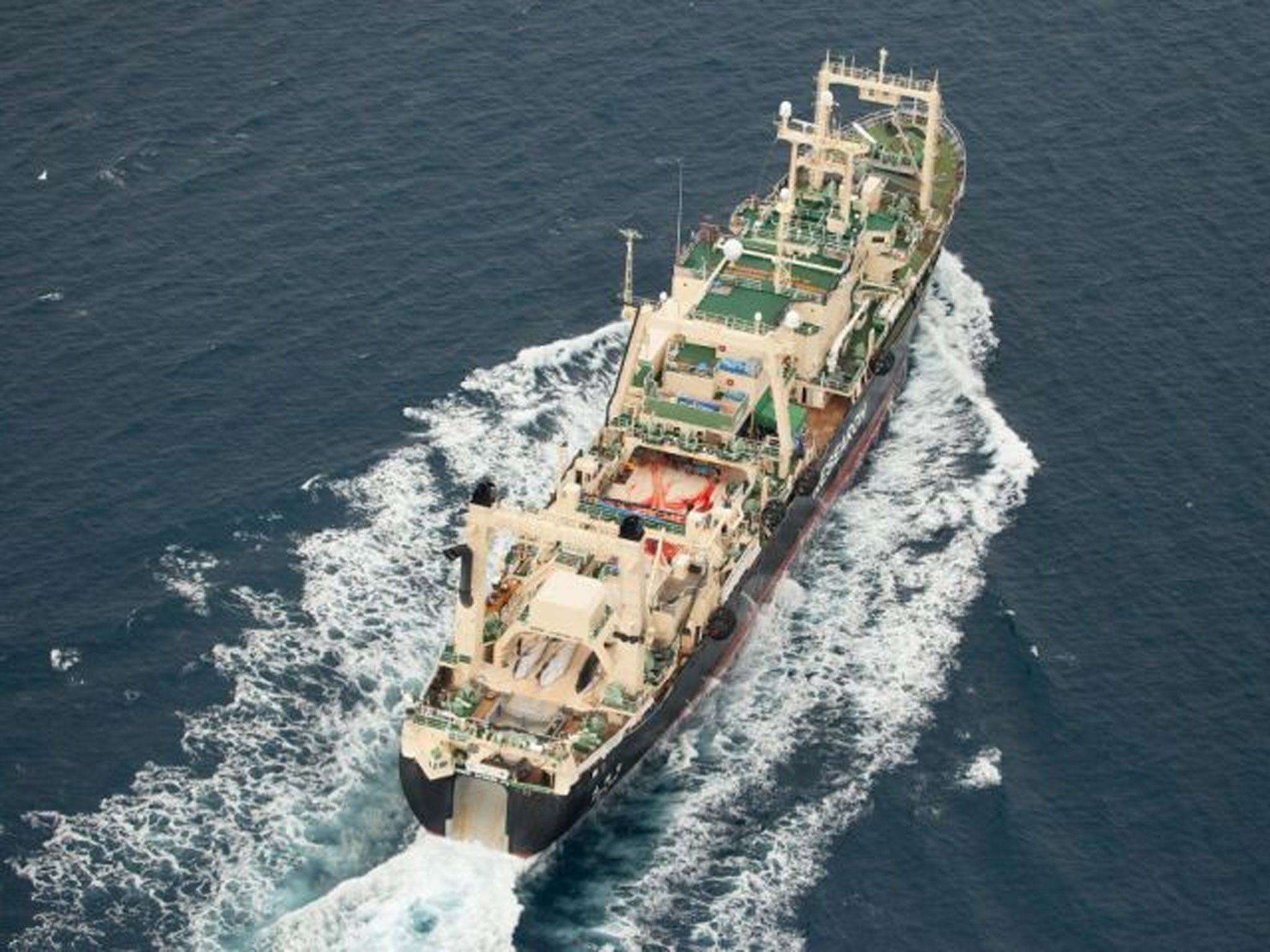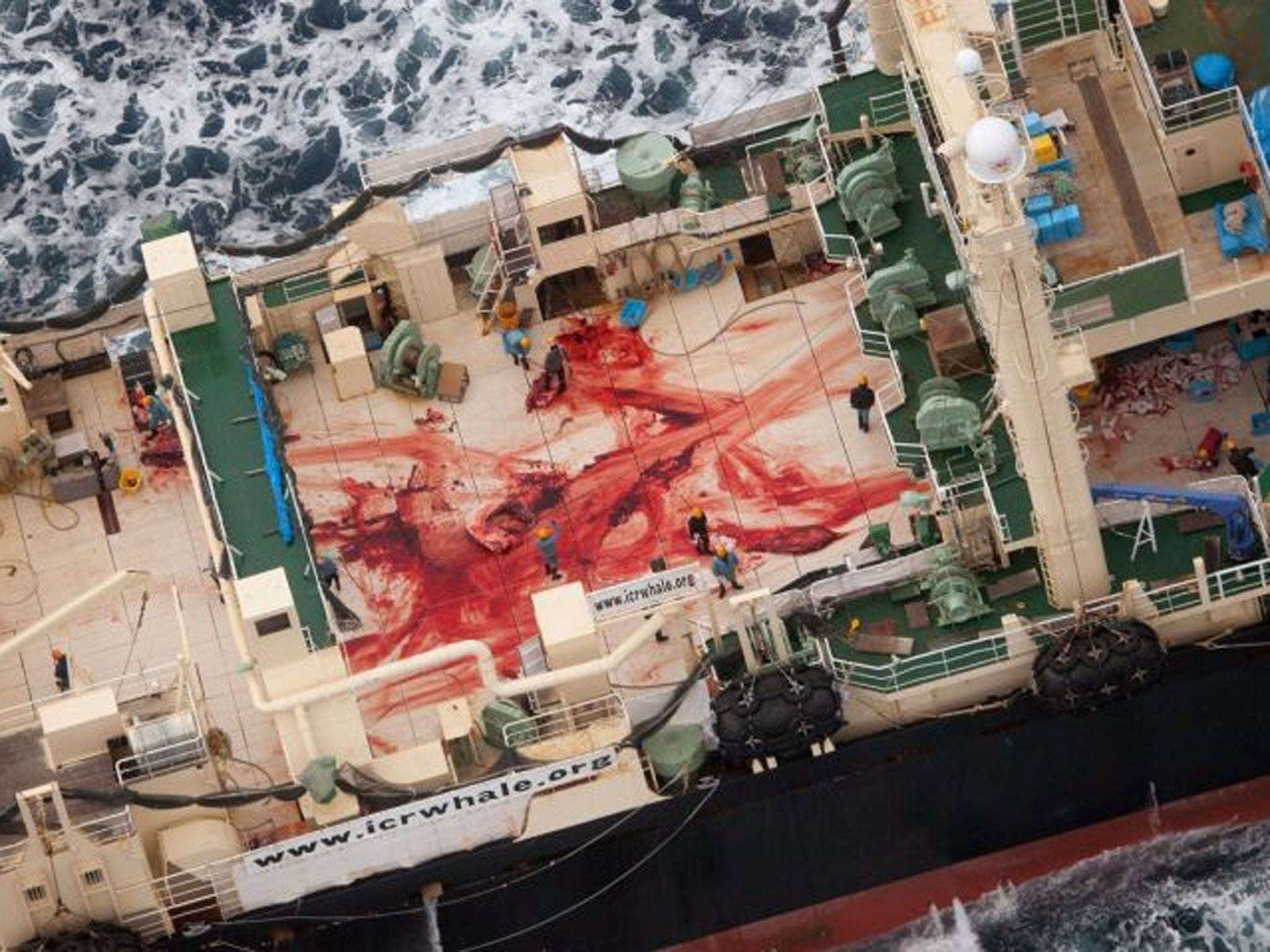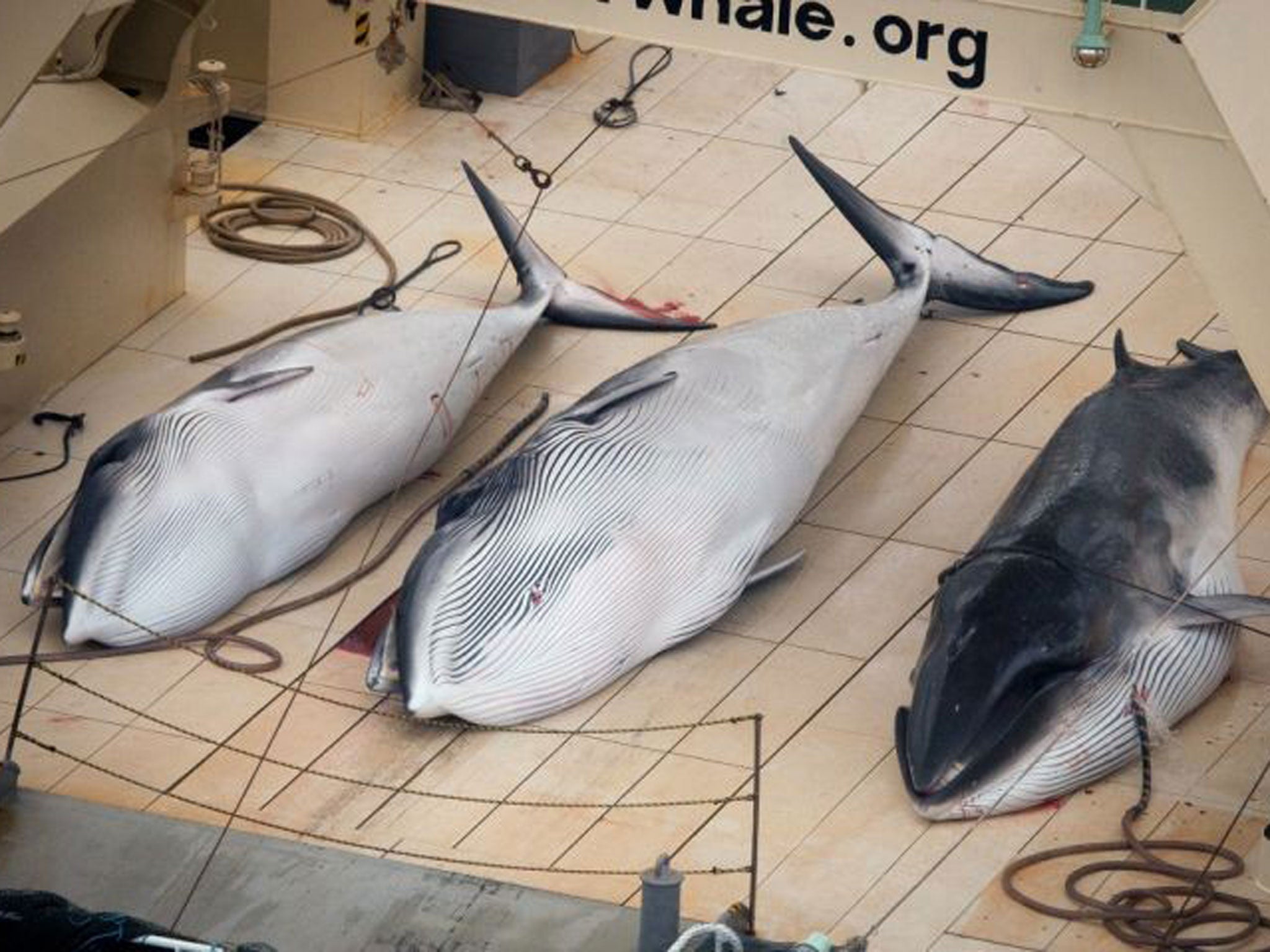Photos show Japanese boats 'whaling in internationally protected area'
Anti-whaling activists Sea Shepherd say they shot the footage showing dead whales in pools of blood

Anti-whaling activists have released images of a Japanese boat with whale carcasses on its deck operating inside an internationally protected area.
WARNING: Graphic content
Members of the anti-whaling activist group Sea Shepherd reportedly spotted the Nisshin Maru sailing through the internationally recognised Southern Ocean Whale Sanctuary in Antarctica's Ross Dependency, within New Zealand's territorial waters, during the annual whaling season.
Footage released by the group reportedly shows the corpses of three minke whales, the deck around them streaked red with blood. Sea Shepherd claims that four whales were slaughtered on Monday morning and that the five Japanese vessels are being forced to stop.
“There's three carcasses on the ship, a fourth carcass has been cut up. There's blood all over the place, meat being carted around on this factory ship deck, offal and innards being dumped in the ocean,” Sea Shepherd Australia chairman Bob Brown told ABC News.
“That's just a gruesome, bloody, medieval scene which has no place in this modern world,” he added.
Mr Brown claims that the Nisshin Maru’s presence in the Southern Ocean Whale Sanctuary, was a “gross breach of international law”.
Commercially hunting whales is banned in the area according to the International Whaling Commission, but Japanese fleets allegedly capture the animals under a “scientific research” loophole in the moratorium on whaling.
However, New Zealand Foreign Minister Murray McCully denied whaling was taking place within his country's waters, and claimed the site was considered international waters, as he condemned the “ pointless and offensive” practice.
“The New Zealand government has repeatedly called on Japan to end its whaling programme. We reiterate this message today,” he said.
A spokesman from Japan's fisheries agency said its programme was “in line with a research plan submitted to the IWC” and that it was “not aware of the existence of a whaling sanctuary so we don't want to comment on their arguments”.
The Japanese Foreign Ministry also stated that that research whaling was “not a violation or an abuse of a loophole in the international convention”.
“This is a legitimate right of the contracting party under Article VIII of the International Convention for the Regulation of Whaling,” it said.

Each whaling season, Sea Shepherd and Japan engage in clashes that occasionally turn aggressive, with stink bombs, water cannons and ship collisions common features.
In the past, a Sea Shepherd boat sank after its bow was sheared off in a collision with a whaling ship and a Sea Shepherd activist spent five months in a Japanese jail after boarding one of the whaling vessels.
Meanwhile, Australia has taken Japan to the International Court of Justice in an attempt to stop its whaling programme, with a verdict set for this year.

Join our commenting forum
Join thought-provoking conversations, follow other Independent readers and see their replies
Comments